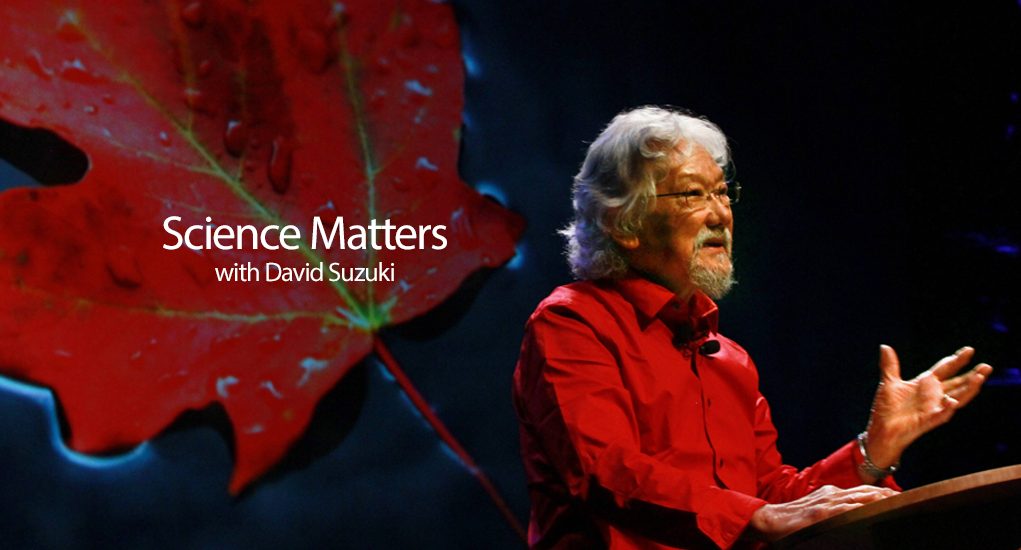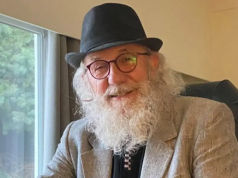Failure to address climate crisis puts children at risk
By David Suzuki.
On November 12, Veneto, Italy’s regional council was debating climate policy in its Venice offices. Minutes after a majority voted against budget amendments to address climate disruption, the chambers were inundated with water. Venice is known for flooding, but it’s getting worse, and the timing in this instance felt like a message.
Our existence is a marvellous phenomenon. We live on a spinning ball of water and rock at just the right distance from the sun for natural cycles to have developed to create ideal conditions for life as we know it. But exploding human populations and hyperconsumption-driven societies have, in a relatively brief time, knocked these natural systems out of balance. We’ve upset the carbon cycle so rapidly by indiscriminately burning fossil fuels and destroying natural carbon sinks like forests and wetlands that consequences are hitting much faster than predicted.
Australia is on fire. Parts of Europe are flooding. Melting permafrost in Northern Canada is raising fears that naturally stored methane will escape, accelerating heating. Refugees are fleeing homelands as climate disruption makes farming and living in many areas difficult. Entire villages in India are being abandoned for lack of water and temperatures too high for crops to survive.
Canada’s North is heating at close to triple the global average rate, and the country overall at twice the average.
The recent Lancet Countdown, an international academic review of climate impacts on human health by 120 experts from 35 institutions, found people in Canada face a range of health risks, including the many effects of increasing wildfires and pollution, such as asthma and other respiratory illnesses. It found pollution from land-based transportation alone caused more than 1,000 deaths in 2015.
In Canada and worldwide, as well as committing our children, grandchildren and those yet to be born to an uncertain future, we’ve made conditions worse for young people today. The Lancet report found children and the elderly are especially vulnerable to climate disruption, as are the least well off.
Global heating is creating a range of health problems. Illness and death are increasing from climate-driven wildfires and smoke, insects carrying diseases such as Lyme and dengue are moving into new territory, malnutrition is on the rise as droughts and flooding cause crop failures and food scarcity, and deadly diarrhea from bacteria like cholera is spreading, with children bearing the brunt of the problems.
“Children’s bodies and immune systems are still developing, leaving them more susceptible to disease and environmental pollutants,” said Lancet Countdown executive director Nick Watts. “The damage done in early childhood lasts a lifetime. Without immediate action from all countries climate change will come to define the health of an entire generation.”
You’d think we’d do everything in our power to protect our children, but we aren’t. Governments here and elsewhere are still putting the fossil fuel industry’s interests ahead of citizens’, while downplaying the climate crisis. Climate science deniers are as vocal and uninformed as ever. Oil industry executives claim to take climate seriously while arguing that fossil fuel demand is rising so we might as well get some money.
With all the knowledge and solutions available, why are we stalling and putting humanity at risk?
As my friend, UBC professor emeritus of human ecology and ecological economics William Rees argued in a two-part Tyee article, we’re still addicted to fossil fuels. Echoing my sentiments, Rees writes, “A rational world with a good grasp of reality would have begun articulating a long-term wind-down strategy 20 or 30 years ago.”
But we didn’t act rationally, and many still aren’t. Rees offers 11 strategies to deal with the crisis, which he argues must go beyond the current “green new deal.” Included are “Formal recognition of the end of material growth and the need to reduce the human ecological footprint,” and reducing production and consumption.
We can’t go back to former conditions. But with great effort and human ingenuity, we can learn to better live in balance with nature. We can get through the climate crisis. But it’s too late for half measures. We need an all-out effort as great as or greater than mobilizations for the “great” wars. We need to kick our fossil fuel addiction now, for our sake and the children’s.
David Suzuki is a scientist, broadcaster, author and co-founder of the David Suzuki Foundation. Written with contributions from David Suzuki Foundation Boreal Project Manager Rachel Plotkin. Learn more at https://davidsuzuki.org/.







